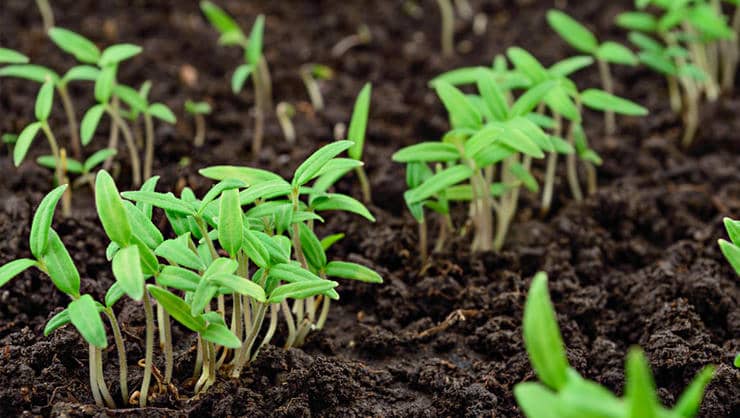Are you a newbie gardener? If yes, this article is totally for you. It indicates 6 most common mistakes gardening beginners often make in their gardens. The useful information below will help you to grow better crops as well as avoid some garden problems.
1. Think too big about gardening
One of the common mistakes novice gardeners often make is take on more than they can handle. Many people dream about a garden with all the vegetables, fruits, and colorful flowers for the first time. However, it seems difficult for them to grow a successful garden because there is a lot of work to do while they have no experience.
Thus, it is ideal to start off small and think small. As you achieve certain gardening skills, knowledge and experience, consider expanding your little garden. This will greatly enhance your chances of success as well as make you more confident.
2. Give plants too much or too little water
Like people and other living things, plants also need water to survive and grow. Watering is probably one of the most confusing gardening tasks to carry out. Too much or too little water can kill your plants. Too little water can cause the plants to wilt and die while overwater can lead to root rot and other diseases.
You should water your vegetables and flowers about 1-3 times per week in the mornings. Also, remember to provide an adequate amount of water for your plants, which ensures healthy roots and effectively resists drought. In addition, you should keep in mind that what needs water is the soil, not the leaves. Always try to keep foliage dry by minimizing water on them to prevent leaf diseases.
3. Do not pay attention to weather
Climate plays a key role in supporting plant growth. When you want to add more plants to your garden, make sure they can adapt to the local weather and growing season. If you wish to harvest some types of warm-season veggies such as corns, beans, peppers, tomatoes, artichokes, melons, and cucumbers, plant them in the late spring, after frost potential is over. These vegetables love the warmth of summer and need both warm soil and high temperatures to thrive.
Unlike these above vegetables, hardy veggies like broccoli, peas, cauliflower, onions, cabbage, potatoes, and spinach prefer growing in cold weather. Obviously, select the plants that are appropriate for each particular climate type can help save tons of money and energy on plant care. They will not only have a better chance to survive and thrive without requiring much water and fertilizer but also attract more native pollinators.
4. Do not take care of pest problems about gardening
Pests such as mice, moles, raccoons, insects, and birds are definitely the most annoying enemies of your plants, aren’t they? These creatures threaten crop quality and cause significant damage to garden plants. If you want to reduce the amounts of pesticides used, think about using some scarecrows or hanging your old CDs on fishing lines or strings. This simple way will scare away unwanted pests like birds and squirrels.
Additionally, you can keep pests from your garden by using spearmint essential oil. It naturally repels insects and stops fungal pests from spreading. What you need to do is soak a number of cotton balls in the oil then place them around your garden. If you have to cope with slugs and snails, try sprinkling some of the salt around the plants. This gardening trick will keep the pests at bay while making foliage healthier and greener.
5. Forget to prepare garden soil for planting
If your method of growing plants is through hydroponics, there is no need to be concerned about soil. However, if you apply the traditional method, you surely cannot ignore this factor. Proper soil preparation appears to be the most important first step in growing a successful garden. Healthy soil means healthy plants and high-quality crops. Moreover, the nutrient-rich soil will help reduce the need for pesticides and fertilizers.
You should do this work before starting planting anything in the garden. The ideal time for preparing is in the spring. At this time, the soil is workable and not too muddy. In order to root well, most types of plants will need a 15-20 cm (6-10 inch) depth. Remember to dig deeper in case you plan to grow root vegetables like carrots, beets, potatoes, parsnips, and radishes. In addition, you should take notice of your soil’s pH by testing and adjusting it. A moderately acid soil (pH 6-7) is good for vegetables to grow.
6. Plant too close together

If you plant too many plants in a pot or have the seeds too close together, they will compete with each other for resources. Consequently, the plants will grow in odd shapes and become small and sickly. Therefore, it is necessary to carefully read the seed packet directions and consult some master gardeners having excellent gardening skills to know the recommended spacing for each plant.
If your plants are too many and too close together, consider uprooting some of them or transferring some into separate containers. Also, you should know that some plants do not work and play well together. For example, corn, beans, and squash are true companions while potatoes, tomatoes, and cucumbers are never considered as good friends. Hence, it is advisable to avoid planting them together.
